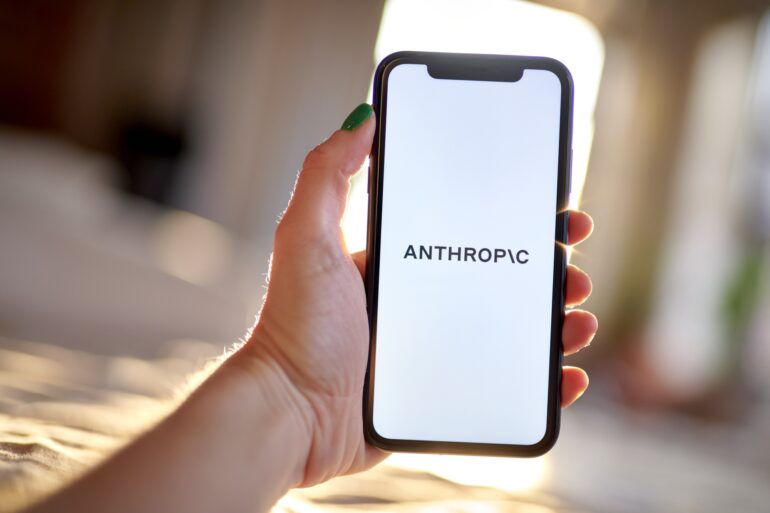TL;DR:
- Anthropic, an AI startup, pledges not to use client data for training large language models (LLMs).
- Clients are assured full ownership of outputs generated by Anthropic’s AI models.
- The company promises to support clients in copyright disputes related to its services.
- Effective from January 2024, these changes will enhance client protection and confidence.
- Anthropic takes responsibility for approved settlements or judgments resulting from AI model infringements.
- The company does not intend to acquire rights to customer content or intellectual property.
- Comprehensive training data is crucial for the effectiveness of advanced LLMs.
- Anthropic’s commitment sets new standards for ethical AI practices and responsible development.
Main AI News:
In the evolving landscape of artificial intelligence, Anthropic, a cutting-edge AI startup, is making significant strides while maintaining a commitment to ethical practices and customer protection. As of January 2024, Anthropic has fortified its commercial terms of service, assuring its clients that their data will not be utilized in the training of large language models (LLMs). This pivotal move aligns with the company’s dedication to transparency and responsible AI development.
Led by former OpenAI researchers, Anthropic has taken a bold stance by declaring that its commercial customers possess full ownership of all outputs generated through the utilization of its AI models. This means that Anthropic has no intention of claiming any rights over Customer Content within the framework of their contractual agreements. This unambiguous commitment sets a new industry standard for safeguarding the intellectual property of clients and fostering trust.
In an era marked by increased vigilance surrounding copyright disputes in the tech industry, Anthropic is at the forefront of support for its customers. The company has taken proactive steps to protect its users from potential copyright infringement claims stemming from the authorized use of its services or outputs. In doing so, Anthropic aims to provide its clientele with enhanced security and peace of mind, complemented by a more user-friendly API experience.
As a testament to its commitment to customer protection, Anthropic has taken the unprecedented step of assuming responsibility for approved settlements or judgments that may arise from any infringements committed by its AI models. These protective measures extend to both Claude API customers and users employing Claude through Bedrock, Amazon’s generative AI development suite.
Crucially, the updated commercial terms of service reiterate that Anthropic has no intentions of acquiring any rights to customer content, nor does it confer any rights, implicitly or explicitly, to the content or intellectual property of either party. This clear delineation of rights underscores Anthropic’s dedication to ethical business practices and client-centered values.
In the ever-evolving landscape of advanced large language models like Anthropic’s Claude, ChatGPT-4, and Llama 2, comprehensive training data is paramount. These models rely on a wealth of diverse text data to enhance accuracy and contextual awareness by learning from a myriad of language patterns, styles, and emerging information.
As the tech industry grapples with legal challenges related to copyright claims, Anthropic stands as a beacon of responsibility, protecting its customers and setting a high standard for ethical AI development. In this era of innovation and accountability, Anthropic’s commitment to transparency, client protection, and responsible AI serves as a guiding light for the industry.
In the rapidly evolving world of artificial intelligence, Anthropic, a pioneering AI startup, has taken a resolute stance in prioritizing ethics and customer protection. Effective from January 2024, Anthropic has reinforced its commercial terms of service, assuring clients that their data will not be utilized in the training of large language models (LLMs). This significant development underscores Anthropic’s unwavering commitment to responsible AI practices.
Anchored by a team of former OpenAI researchers, Anthropic has boldly declared that its commercial clients are the rightful owners of all outputs generated through the utilization of its AI models. This declaration signifies Anthropic’s clear intent not to assert any rights over Customer Content within the confines of their contractual arrangements. This unwavering commitment redefines industry standards by emphasizing the safeguarding of clients’ intellectual property and fostering trust.
In an era marked by heightened scrutiny of copyright issues within the tech industry, Anthropic stands at the forefront, offering steadfast support to its customers. The company has proactively taken measures to shield users from potential copyright infringement claims arising from the authorized use of its services or outputs. This proactive approach aims to provide clients with an enhanced sense of security and confidence, coupled with a more user-friendly API experience.
In a remarkable display of commitment to customer protection, Anthropic has undertaken the unprecedented responsibility of covering approved settlements or judgments that may result from any infringements committed by its AI models. These protective measures extend to both Claude API customers and users who employ Claude through Bedrock, Amazon’s generative AI development suite.
Crucially, the updated commercial terms of service reaffirm Anthropic’s lack of intent to acquire any rights to customer content. Furthermore, it explicitly states that neither party is granted any rights, either implicitly or explicitly, to the content or intellectual property of the other party. This clear delineation of rights underscores Anthropic’s dedication to ethical business practices and a client-centric approach.
Conclusion:
In the ever-evolving landscape of advanced large language models such as Anthropic’s Claude, ChatGPT-4, and Llama 2, the foundation of comprehensive training data is indispensable. These models rely on an extensive array of diverse text data to enhance accuracy and contextual awareness by assimilating various language patterns, styles, and emerging information.

